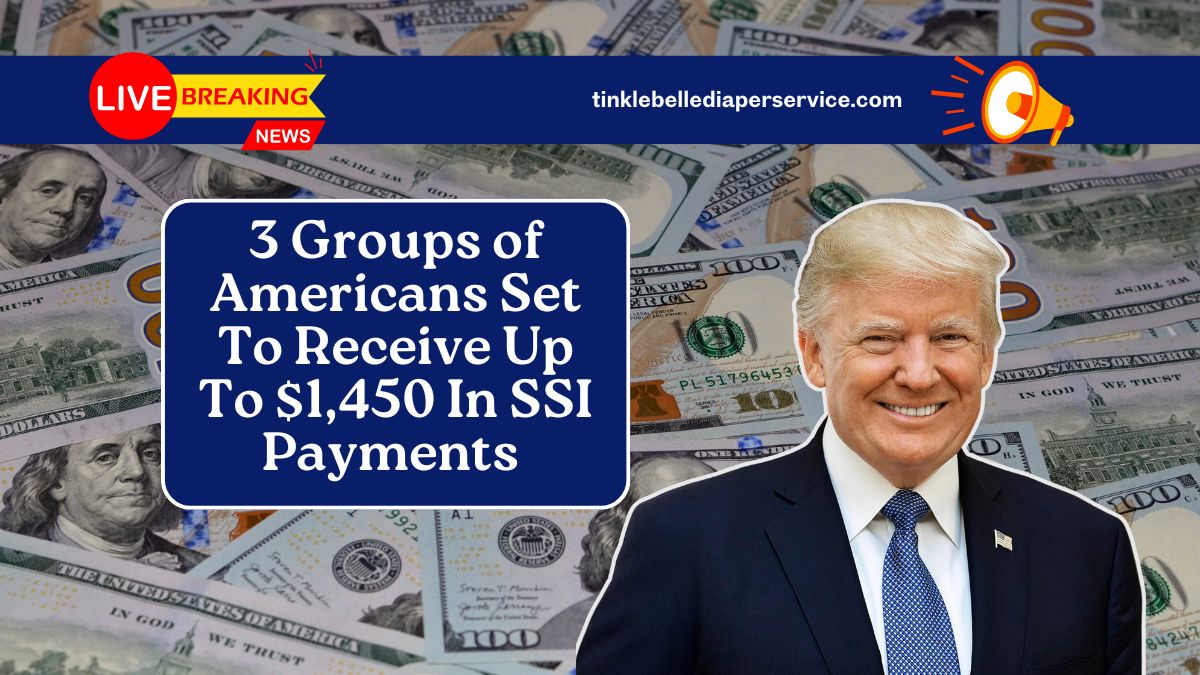The Supplemental Security Income (SSI) program, managed by the Social Security Administration (SSA), continues to be a crucial financial lifeline for millions of Americans. In 2025, SSI will provide monthly payments up to $1,450 for certain individuals with limited income and resources. But not everyone qualifies.
There are three main groups of Americans who are eligible for Supplemental Security Income in 2025, and each must meet strict financial and medical conditions. Let’s explore who qualifies, what payment amounts are available, and how the benefit works.
What Is Supplemental Security Income (SSI)?
Supplemental Security Income (SSI) is a federal income support program that offers monthly payments to individuals who have limited income and financial resources.
It’s primarily designed to help older adults, people with disabilities, and individuals who are blind cover basic living expenses like food, shelter, and clothing.
Unlike Social Security retirement benefits, Supplemental Security Income is need-based, and eligibility depends on your current income, assets, and personal circumstances, not your work history.
Who Qualifies for SSI Payments in 2025?
The Social Security Administration (SSA) has outlined three key groups that may qualify for SSI payments in 2025. These groups are united by their low income and limited resources, but each has unique qualifying conditions.
1. Seniors Aged 65 and Older
If you are 65 years of age or older, you may qualify for SSI regardless of whether you are retired or receiving Social Security retirement benefits. However, you must:
- Be a U.S. citizen or qualifying non-citizen
- Have limited income and assets
- Not exceed the resource limit: $2,000 for individuals, $3,000 for couples
2. People With Disabilities
Adults and children who have a disability that meets the SSA’s strict definition can receive SSI. The disability must:
- Be long-term and prevent you from working
- Be verified by medical documentation
- Be expected to last at least 12 months or result in death
The SSA may conduct disability reviews periodically to ensure continued eligibility.
3. People Who Are Blind
Individuals who are legally blind, meaning their vision is 20/200 or worse in the better eye with correction, or their field of vision is 20 degrees or less, may also qualify.
Like the other groups, blind individuals must still meet income and asset limits to receive benefits.
SSI Payment Amounts for 2025
The maximum SSI payment amounts for 2025 depend on your living situation and marital status. Here is a breakdown of the current figures:
SSI Payment (2025)
| Recipient Category | Maximum Monthly Payment | Average Monthly Payment |
|---|---|---|
| Single Individual | Up to $967 | Around $717 |
| Married Couple | Up to $1,450 | Varies by income/resources |
| Essential Person | Up to $484 | N/A |
- An essential person is someone who lives with and provides care for an SSI recipient without receiving pay.
Payments are generally made on the first of each month, unless that date falls on a weekend or holiday.
Key SSI Requirements
In addition to being in one of the three groups, you must meet these financial eligibility criteria:
- Income Limit: Your countable income must fall below the federal benefit rate
- Resource Limit: Individuals can’t have more than $2,000 in assets; couples can’t exceed $3,000
- Residency: Must live in the U.S. and be a U.S. citizen or qualified alien
- Application: Must apply through the SSA via online or in-person methods
Upcoming Payment Date
The next SSI payment for June 2025 is scheduled for May 30, 2025, since June 1 falls on a weekend.
The Supplemental Security Income program remains a vital safety net for seniors, people with disabilities, and individuals who are blind. In 2025, monthly payments can reach up to $1,450 for couples, $967 for individuals, and $484 for essential persons.
However, eligibility depends on strict income and resource limits, and applicants must fall into one of the three qualifying groups.
If you or a loved one fits the criteria, make sure to check your eligibility and apply through the Social Security Administration. These monthly payments can help you cover basic living expenses and reduce financial stress in 2025 and beyond.
FAQs
Can I receive both Social Security and SSI benefits?
Yes, some people qualify for both Social Security retirement or disability benefits and SSI. However, your Social Security income will reduce your SSI payment dollar-for-dollar.
What counts as a resource for SSI eligibility?
Resources include cash, bank accounts, stocks, property, and anything else that can be converted into cash. The SSA does not count your home, car, or basic household items in most cases.
How do I apply for SSI benefits?
You can apply online through the SSA website, call their toll-free number, or visit your local Social Security office. Medical and financial documentation will be required.
